My parents are dead now, and I think about them both every day. They loved the cinema, and would go all the time as a young couple. My mum had a crush on the young Marlon Brando after seeing him in On The Waterfront and as Mark Antony in Julius Caesar. But it was my dad who was the more voluble about film, if not necessarily the more opinionated.
Albert Desmond Bradshaw came to London from Belfast in the 1950s to be a photographer. That was where he met my mum, Mollie, who was working as a secretary. They lived in Highgate, north London and were a hip couple-about-town before my sister, Sarah, and I came along; they then moved to a cottage in Letchmore Heath, near Watford. If I had to cast Dad in a film, I’d suggest Adrian Dunbar – although Dad was tall and beanpole-thin when we were growing up, with an expression of droll disapproval, which we loved as kids, but found infuriating as stroppy teenagers. He loved watching films on TV with us and, to everyone’s rage, talking over the dialogue when he semi-recognised an actor: “That’s…! That’s…! Come on, Peter, you know, who is it?”
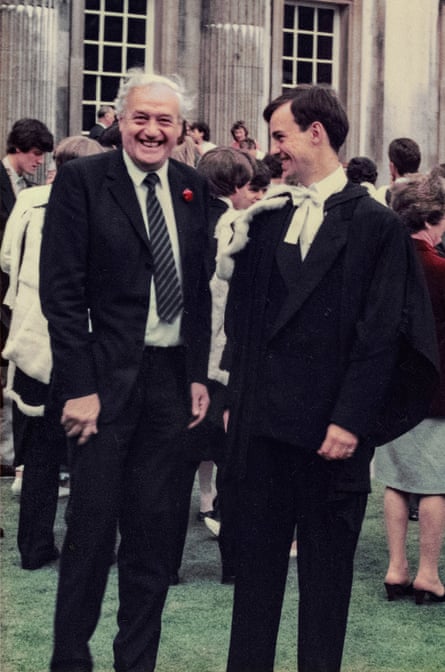
Mum would take us to the cinema as a treat in the holidays: Mary Poppins, The Jungle Book. But it was my dad who got me into watching films. I’ll never forget being about 10 or 11 with Sarah at the dinner table, and asking my parents about a film called Psycho, which I had seen in the TV listings. (It sounded like something I would buy at the shops, like Rolo or Toffo.) Dad launched into a description of the first bit of the film, including Anthony Perkins spying on the naked Janet Leigh in the shower. He even asked me and Sarah if we understood why he should want to be spying on her. My memory is that we nodded, dumbly, but for all we knew of nightmarish sexual obsession and misogynistic violence, Dad could have been describing a tea-making ceremony on Pluto. The discussion ended there. I had no idea what the later, legendary “shower” scene was like until I watched the film as a student.
My dad told me to watch the 1949 Ealing classic Kind Hearts And Coronets, directed by Robert Hamer, with Dennis Price as the serial killer Louis, elegantly murdering members of the aristocratic D’Ascoyne family (all played by Alec Guinness) so he can become duke. It seemed to be on TV all the time in the 70s. My dad adored the scene in which young photographer Henry D’Ascoyne and Louis exchange camera chat outside the country pub. (“Excuse me. Isn’t that a Thornton Pickard? – Yes. Are you a photographer? – Dabble in it. Got a Sanger Shepherd!”)
Before setting up in photography on his own, Dad was assistant to the noted photographer Maurice Broomfield, who recorded postwar industrial Britain and was the father of the documentary film-maker Nick Broomfield. Dad took a lot of photographs for the Financial Times in the 50s, but they are untraceable, because they are uncredited, or credited only to Maurice – but I still own a cache of amazing photographs that he took of postwar streetlife in France.
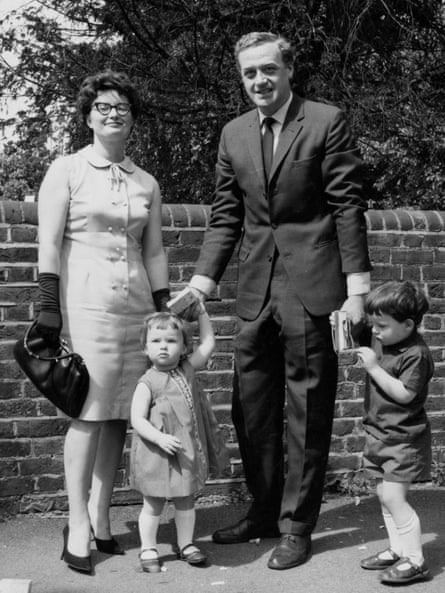
How thrilled Dad would be as we watched Kind Hearts And Coronets on TV – particularly the scene in the darkroom, which Louis plans as the site of Henry’s murder. Dad’s darkroom was next to my bedroom: as mysterious and wonderful (and inaccessible) as Aladdin’s cave, full of strange chemicals and occult technical devices. Much later on, when I recorded the audio commentary for the DVD edition with Terence Davies and Matthew Guinness (son of Alec), I was almost speechless with unexpressed emotion. We recorded it four years after Dad died of cancer. It was the nearest I could come to a séance, recalling my dad’s spirit.
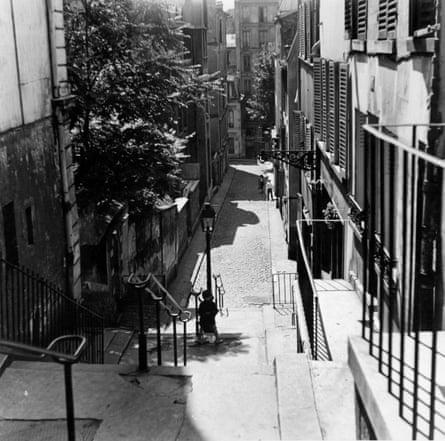
What Dad would have thought of one of my favourite films, Raging Bull, I don’t know. I’m reasonably sure he never saw Martin Scorsese’s 1980 portrayal of the brutal, emotionally self-harming real-life boxer Jake LaMotta, played by Robert De Niro. I don’t think he would have liked it. The first time I saw it, as a teenager, I got Dad to pick me up from the cinema (the Screen on the Hill in north London, now the Everyman). It was electrifying, yet it wasn’t the boxing but the theatricality and sacrifice in the ring that appealed to me. When I asked Dad if he remembered Jake LaMotta, he replied: “Just a brawler.” He was interested in boxing as a young man and, he told me, often went to fights as a teenager with his friends in Ulster Hall in Belfast. They would smoke (the way they would in the cinema) and laugh at the ref’s laconic dismissal of whingeing fighters: “Box on!” – a phrase he himself would use in his strong Belfast accent if my sister or I claimed to have been hurt in a squabble.
Dad loved the cinema, but hardly ever went. It was a habit that belonged to his youth. He watched movies on TV avidly, and in the 80s he would rent clunky video cassettes or record films off the TV and nerdishly write the films’ titles along the video’s spine. As a boy in Belfast, though, he and his brothers went all the time – at a time when the city had 40 movie theatres – often to the Curzon on the Ormeau Road, which was later bombed to smithereens in the Troubles. He was obsessed with the psychological drama Gaslight, directed by George Cukor. “Paula!” he would mysteriously boom from the dinner table to my mum in the kitchen – impersonating Charles Boyer’s sonorous French voice, with a hint of Belfast. Mum would laugh (Sarah and I were baffled).
The strange thing is, Dad was a kind of film-maker. He loved home movies, and had a beautiful Bolex Super 8 cine camera. Yet he scorned people who just showed their raw, silent footage. He had an 8mm film editor and the Bolex technology allowed him to create a sound strip. He filmed my sister and I playing badminton at the caravan park on holiday, and on the beach, having our packed lunch. Later, he put on music, sound effects from the LP borrowed from the public library (“waves breaking”, superimposed on a shot of the surf, was eerily effective) and added voiceover in a heart-rendingly careful enunciation that made him sound like a Belfast Jacques Cousteau. He even had a go at recording speech, taping me with our vintage cassette recorder, and doing a clapperboard-style hand clap in front of the camera to synchronise sound and image. “Thanks, Pete!” he would say afterwards, with an air of reserve. As an actor, I think I did not entirely satisfy the director. We still have the Super 8 reels, transferred to DVDs. They play like remembered dreams. But watching them without the stuttering rattle of the projector isn’t as good.
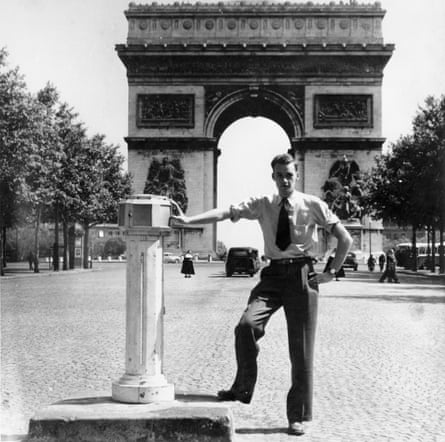
The only family visit to the cinema was in 1975, to see Sidney Lumet’s Murder On The Orient Express, starring Albert Finney as Hercule Poirot; it was showing at the now-vanished Watford Empire. Dad professed to be astonished at how clean and fresh the scuzzy auditorium looked. He said the cinemas of his boyhood were like boxing halls, every surface furred with fag-ash and the screen images flavoured with cigarette smoke. I asked him afterwards what he thought of the film. “Oh, pretty good hokum!” he grinned – his habitual term of approval for anything.
Sometimes I try to imagine my parents’ lives together before my sister and I were born. That image is not the real world, but a celluloid enhancement, a London-set black-and-white romantic drama directed by Robert Hamer or Noël Coward. The final scene is a shot of thirtysomething Mum and Dad in the front of our family car (an elderly Ford Cortina estate), looking out at the camera through the windscreen, with me and Sarah in the back, as Dad puts the car in gear and we set off on holiday or a trip to my grandparents as the credits roll.
The Films That Made Me... Essays And Reviews From The Guardian, by Peter Bradshaw, is published by Bloomsbury on 19 September, priced £16.99. To order a copy for £13.49, go to guardianbookshop.com or call 0330 333 6846.
If you would like a comment on this piece to be considered for inclusion on Weekend magazine’s letters page in print, please email weekend@theguardian.com, including your name and address (not for publication).
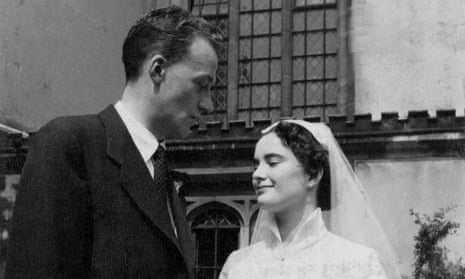
Comments (…)
Sign in or create your Guardian account to join the discussion